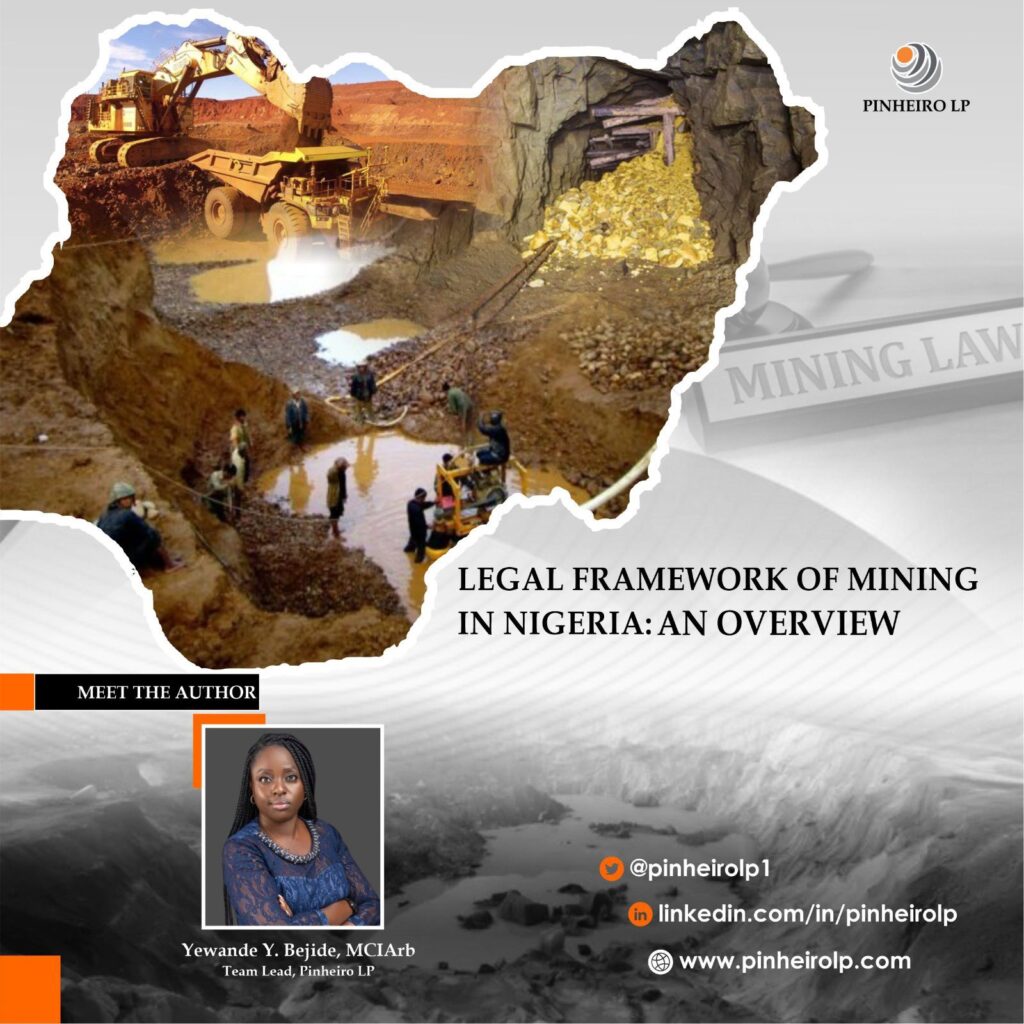
“Section 2 of the Explosives Regulations, Cap. 117, Laws of the Federation of Nigeria, 1990 defines explosives…The same section defines mining as having the meaning assigned to it in the Minerals Act, and shall include the use of explosives in works authorized under the Petroleum Act. Although there is no definition of ‘mining’ in the Minerals Act…”
C. G.G. (NIGERIA) LIMITED V CHIEF LAWRENCE OGU (2005) 8 NWLR (Pt. 927) S.C.
Mining may be defined as the process of extracting useful materials from the earth. However, before mining activities are embarked upon, mineral exploration is required. Mineral exploration is therefore a precursor to mining; it refers to the process of exploring an area of land to determine whether there are minerals that are economically of interest.2 . Thus, the prime objective of mineral exploration is to find and acquire large deposits of minerals at a minimum cost and in a timely manner.
Mining operations in the region called Nigeria can be traced to over a century ago. In 1904, the British started tin mining operations in some territories and by 1906, gold and coal deposits were also discovered. This eventually led to the promulgation of The Minerals Act 1946 and the Coal Ordinance in 1950 to regulate the growing mining sector. The Gold and Diamond Trading Act and the Explosive Acts were also enacted in 1964, as explosives were of great importance in opening up lands and caves for necessary exploration and discovery. Subsequently, with the exploration and mining of tin, the Tin Act was enacted in 1967 and the Quarries Act and Allied Regulations were enacted in 1969. In 1995, the Federal government (hereinafter referred to as “the government”) established the Ministry of Solid Minerals Development commissioning a phased investigation and appraisal of Nigeria’s solid mineral potential and an inventory of the mineral potential of Nigeria, which specified the occurrence of 34 mineral commodities at about 450 locations spread in almost all the states of the Federation. In 2002, the government developed a seven-year strategic plan for the mining industry setting up the Nigerian Geological Survey Agency. The Nigerian Geological Survey Agency (NGSA) identified the occurrence of additional 42 mineral resources across the country in addition to the existing 34 minerals that had been identified and promoted for commercial exploration and production; putting the total number to about 76 minerals. In 1999, the government enacted the Minerals and Mining Act 1999.
Prior to the enactment of the Mining Act 1999 Act, a new Minerals Policy which favored a private sector-led development of the mining industry was published by the government to replace the 1971 policy which favoured a government-led development of the mining sector that led to the 1977 Indigenization Decree.
Therefore, the mining industry is now open to any private investor—so far, they fulfill all legal requirements. The role of the private in economic growth and sustenance of the sector and the funds that accrue therefrom is quite prominent as seen by the on-going Ministry of Mines and Steel Development request for and receipt of proposals from Fund Managers to be engaged as consultants for the strategic management of Solid Minerals Development Fund’s Investment Portfolio. This in our view is a commendable development.
THE LEGAL FRAMEWORK AND IMPACT OF MINING ACTIVITIES
Section 4, item 39 of the Exclusive Legislative List of the 1999 Constitution of the Federal Republic of Nigeria (as amended) confers upon the National Assembly the exclusive power to make laws in respect of mining in Nigeria.
In 2007, the National Assembly enacted the Nigerian Minerals and Mining Act, 2007 (hereinafter referred to as “the Act”) repealing the 1999 Minerals and Mining Act. It is presently the primary legislation regulating mining activities in Nigeria.
According to the National Bureau of Statistics’ executive summary on Mineral Production Statistics (2019 – 2020), the mining and quarrying sector is crucial to the growth and development of the economy through the exportation of non-oil mineral resources and the resultant diversification of the economy.
However, the relevance of the sector is closely tied to the occurrence of deposits of minerals in the region. The reality is that out of approximately 44 (forty-four) identified solid minerals in Nigeria, only 7 have been strategically selected and promoted for private sector participation and investment by the Federal Government and these include gold, coal, bitumen, limestone, iron ore, lead/zinc and barites but the occurrences of these minerals are in such small quantities that they can only be described as mere ‘showings’ valuable to someone somewhere, or of scientific or technical interest but with little or no commercial prospect while minerals such as iron, lead-zinc, tin- tantalum, coal, bitumen, manganese and probably nickel, and valuable industrial minerals and rocks such as barite, halite, talc, kaolin, gemstones, lignite, uranium, limestone, marble and granite also occur as relatively small deposits and are therefore extracted by ASGM (Artisanal And Small- Scale Mining) and quarrying.
According to statistics, in 2018 the sector contributed a meagre 0.5% to the Nation’s Gross Domestic Product (GDP) with an annual production averaging 40 million metric tons valued at about 34 billion naira ($95 million US dollars). The solid minerals with the largest production contributing to that production are industrial rocks: limestone, granite, laterite, sand, shale and clay constituting over 95% of production by tonnage and 90% by value while the metallic minerals produced are mainly lead-zinc, manganese, gold, tin and columbite-tantalite which are exported and form about 0.2% of total exports although the total volume of gold mined is unknown, and most are smuggled out of the country.
Efforts are however ongoing to diversify the Nigerian economy by increasing production and domestic utilization of industrial minerals, iron ores, bitumen and coal deposits to form the core of a “roadmap” for the revitalization of the mining and solid minerals sector; with the main objective of increasing the sector’s contribution to 10% of GDP within the next decade.
Mining activities in Nigeria, due to poor enforcement of extant law(s) amongst other factors has had a range of negative impacts on the environment and public health. These impacts include widespread environmental degradation, such as air pollution from particulate emissions, the release of chemicals from abandoned mines and ponds, water contamination, and the improper disposal of radioactive waste and lead poisoning incidents that have occurred in various regions. The mining sector has also been associated with human fatalities, further exacerbated by illegal acquisition of explosives and unsafe storage of same my illegal miners one of such incidents being the recent explosion at Ibadan on the 16th day of January, 2024.
Additionally, the processing of solid minerals, particularly limestone quarrying and cement production in towns like, Shagamu and Ewekoro areas of Ogun state, results in significant air pollution posing serious risks to public health, with complaints from residents of several ailments ranging from eye discomfort, asthma, etc. Furthermore, the plumes of pollution have had detrimental effects on local flora, leading to a decline in kola nut production from plantations in affected areas.
It is evident that the current state of mining activities in Nigeria has had grave consequences on the environment and public well-being despite the existence of State Mineral Resources and Environmental Management Committee (MIREMCO) in each State of the Federation created pursuant to Section 19 of the Act. Each Committee in each State is made up of a cross section of officers of that State, to wit: a representative of the Mines Environmental Compliance Department in the Ministry doubling as Chairman of the Committee, a representative of the Ministry responsible for Land matters or Mineral related matters, the Mines Officer, a representative of the Ministry of Agriculture or Forestry, a representative of the Office of the Surveyor-General, a representative of the Local Government Council when matters affecting the said Local Government Area are being considered by the Committee, a representative of the State Environmental Department or Agency, and a representative of the Federal Ministry of Environment in the State.
The role of the aforesaid Committee in each State includes, amongst others, considering and advising the Minister on issues, to wit; matters/issues affecting grants of mining titles, affecting pollution and degradation of any land on which any mineral is being extracted, to advise the Departments of the Ministry established in accordance with the provisions of this Act for supervision of mineral exploitation and the implementation of social and environmental protection measures, advise the Local Government Areas and communities on the implementation of programs for environmental protection and sustainable management of mineral resources, advice and offer necessary assistance required by holders of mineral titles in their interaction with State Governments, Local Government Councils, communities , civil institutions, and other stakeholders, advise the Minister in resolving conflicts between stakeholders and advise the Minister on mineral resources development within the State as the Minister may, from time to time, refer to the Committee; amongst other sundry responsibilities.
According to the Act each committee meets once every three months and at such times as the Minister may deem necessary; and it is worthy to note that the Committee is also empowered to regulate its own procedure.
Also, each mining company or individual involved in the exploitation of minerals resources pay tax for environmental protection, mine rehabilitation, reclamation and mine closure costs.
Hence the question at this point is are these committees in each state active considering they are mandatorily required to meet 3 times a year? How can these committees in each state discourage illegal mining and engender obedience to the Act and internationally recognized standards in order to mitigate the negative impacts of mining activities and ensure sustainable development of the sector.
Nigeria, unlike Ghana, may well be described as a ‘Mineral Nation’ with several mineral occurrences, but not a ‘Mining Nation’ because Nigeria lacks large mines to extract, refine and induce sale of mineral resources. Ordinarily the mining sector should bring extensive economic, social and political development as well as foreign investment opportunities to Nigeria.
However certain conditions must be met like the existence of appropriate and effective legal framework, well-defined regulatory practices, political stability, flexible ownership, requisite tax reliefs and exemption from customs duty, etc. Although in respect of the latter the Act makes robust provisions as it provides for a 3-year tax relief at the inception of operation which can be renewed further by the Minister and exemption from payment of customs and import duties in respect of plant, machinery, equipment and accessories imported exclusively for mining operation; amongst other reliefs. The Act provides that every Mineral Titleholder (person or company granted Reconnaissance permit, Exploration License, Small- Scale Mining lease, Mining Lease, Water Use Permit, or Quarry Lease or anyone granted such licenses in respect of minerals. It is important to note that although the Act recognizes rights vested by assignment it expressly excludes a mortgage or charge or a holder of a security interests).
The Act also provides that the amount of any loss incurred by Mineral Titleholder(s) (“MTs”) is to be deducted as far as it is possible from the assessable profits from its first year of assessment after which the loss was incurred and if that cannot be ascertained, then it can be deducted such amounts of such assessable profits of the next year of assessment. MTs are permitted to do this up to a limit of four years after which period any unrelieved loss shall lapse. They also enjoy exemptions from customs and import duties in respect of plant, machinery, equipment and accessories imported specifically and exclusively for mining operations; expatriate quota and resident permit in respect of the approved expatriate personnel and personal remittance quota for expatriate personnel, free from any tax imposed by any enactment for the transfer of external currency out of Nigeria.
Laudably, the Act also grants MTs permission to retain and use earned foreign exchange such that where the holder of a mineral title earns foreign exchange from the sale of his minerals he may be permitted by the Central Bank of Nigeria to retain in a foreign exchange domiciliary account a portion of his foreign exchange earnings for use in acquiring spare parts and other inputs required for the mining operations which would otherwise not be readily available without the use of such earning; while also enjoying free transfer of currency through the Central Bank in respect of loan servicing repayments where a certified foreign loan has been obtained by the MT for mining operations; and also remittance of foreign capital in the event of sale or liquidation of the mining operations or any interest therein attributable to foreign investment.
MTs also enjoy tax relief for three (3) years commencing from the date of operation which may be further extended by the Minister for a further period of two (2) years by having regard to the company’s level and rate of development.
From the above it is evident that the Act provides a clear-cut path for the Mining Sector to contribute significantly to the Country’s economic development. However, like all sectors it is fraught with numerous challenges and obstacles hindering its growth in spite of the quite robust Act regulating the sector. These obstacles include overlapping responsibilities between federal and state governments, inadequate infrastructure such as transportation, power supply, access to water and last but not the least security challenges.
How to Apply to the Nigeria Mining Cadastre Office for Mineral Title
A company seeking a mining lease must be a going concern duly registered with the Corporate Affairs Commission with requisite share capital for the business activity the company intends to undertake; and must not have shareholder holding a controlling share who has been found guilty of an offence under the Act within 5 years prior to the application. It is important to note that individuals can also apply for and be issued mining licenses. However same must be a Citizen of Nigeria with legal capacity and who has not been convicted of a crime. Mining Co-operatives are also eligible.
The company or individual’s Solicitor or Representative is to approach the Nigeria Mining Cadastre Office (NMCO) being the administrative body very similar to what the Corporate Affairs Commission (CAC) is to Companies and Allied Matters Act which establishes the CAC.
The NMCO is empowered by the Act to receive applications from applicants seeking mineral titles, permits, issues, and to keep a register of Title holders same amongst other duties pursuant to the Act. Like CAC, it can sue and be sued in its own name. It is presided over by a Director General and is the only agency responsible for the administration/ issuance of mineral titles just like the Corporate Affairs Commission is the only agency empowered to register and issue certificates of registration to Companies/businesses.
The NMCO also receives and disposes of applications for the transfer, renewal, modification, relinquishment of mineral titles or extension of areas. The NMCO also maintains a register of applications. The register chronologically records all applications for mineral titles in a priority book used to prioritize applications as received; Just like CAC its Head Quarters is situated in Abuja with a number of Zonal offices across the Nation. According to Section 7 of the Act, the NMCO shall open a series of files known as Mining Cadastre Office Register, to wit: (a) a register of Reconnaissance Permits; a register of Exploration Licenses; a register of Mining Leases; a register of Small-scale Mining Leases; (e) a register of the Water Use Permits; and (f) a register of Quarry Leases.
The Act further provides for the criteria for the acquisition of each license, permit or lease.
Generally, there are two major types of mining licenses in Nigeria that are relevant and important for every company seeking to engage in the mining sector. These are Possess/Purchase License and Mineral Buying Centre License. A company that desires to export minerals must also obtain a Mineral Export Permit which shall be obtained each time it seeks to export minerals.
For either of the two licenses, the company must provide copies of its CAC Incorporation Documents, Tax Clearance Certificate, and Attestation of Non-conviction from a Legal Practitioner, Bank Reference Letter, and Consent of a Mining Permit Holder. For Mineral Buying Center License, since it includes storage, the company must furnish all the above plus additional Warehouse and Environmental Impact Assessment Report. The License permits a company to buy and store lithium in a particular location. All attracts statutory fees. Companies must also fill Mineral Buying Center License: Duly completed application forms, pre-feasibility report (with COMEG (Council of Nigerian Mining Engineers and Geoscientist) seal & signature), evidence of financial capabilities (bank statements etc.), evidence of technical competence person(s), Work plan, Irrevocable Consent from land owners/ those in possession of the land, Attestation of no conviction of criminal offence under section 53 of the Act, CAC Incorporation Documents preferably a Certified True Copy and of course proof of payment of processing fees.
Note that before mining exploration commences, there are pre-exploration requirements and documents which must be provided, to wit; evidence of Environmental Impact Assessment through Mines Environmental Compliance Department of the Ministry, evidence of Community Development Agreement, evidence of host community Compensation for lands, cash crops etc. which may be lost during applicant’s activities.
OPPORTUNITIES FOR DIVERSIFICATION AND GROWTH
Notably, one of the most significant benefits of solid mineral resources is the potential to create employment opportunities from the nascent stage of exploration to extraction and processing leading to the export of minerals requiring a skilled workforce, to wit; geologists and engineers to laborers, technicians, health workers, etc.
Secondly, a booming sector will stimulate growth in related industries; such as manufacturing, processing, construction, health, logistics, etc thereby fostering a web of interlinked economic activities with the capacity to drive industrialization and in the long run, commercialization.
Nigeria’s reliance on oil revenue leaves the economy vulnerable and susceptible to global oil price fluctuations. Diversifying revenue sources through the exploration of solid minerals is a prudent strategy to mitigate this self-induced risk.
KEY CHALLENGES IMPEDING NIGERIA’S MINING INDUSTRY.
Inadequate infrastructure is a major challenge plaguing the mining sector in Nigeria. Effective mining operations require essential amenities, and well-developed infrastructure. Unfortunately, Nigeria is plagued with insufficient road networks, irregular power supply, and limited access to water posing major obstacles to the efficient functioning of mining operations. To address this challenge, it is imperative for the government to prioritize the provision of high-quality road networks, consistent water supply, and reliable power infrastructure to enhance the overall mining processes in the country.
Another challenge faced by the sector is value addition. The Country’s minerals, similar to the oil and gas sector, are primarily exported in their raw form for example minerals like Lead and Zinc are mined and exported without undergoing significant processing.
Third is illegal mining. Generally, it is the responsibility of Federal Mines Office in each state through Special Mines Surveillance Task Force and MIREMCO to arrest illegal miners but the reality is that illegal mining continues to persist as sometimes host communities protect these illegal miners by reason of the kick back they receive as unfortunately Nigeria is not bereft of corrupt practices. To successfully curb this there must be collaboration between the federal government and state/local authorities.
Also, the reality is that mining is a capital-intensive venture – be it in terms of license application, renewal or man power/skill acquisition and retention.
CONCLUSION
The vast array of mineral resources in Nigeria holds immense potential to transform our Country’s economy and steer it towards a path of sustainable growth and development. A concerted effort to leverage these resources, along with prudent policies and effective governance, can drive job creation, diversify revenue streams, and bolster our position in the global economy. However, it is crucial to ensure that these efforts are underpinned by ethical and sustainable practices that protect both the environment and the rights of local communities. By embracing the multifaceted value of mineral resources, Nigeria can chart a course towards economic prosperity and resilience on a foundation of diversified strength.
We cannot conclude without commending the NMCO site (eMC+) for being resplendent with relevant information and a consistent reiteration that applications are treated on a first come first served basis. The department site contains several key features including quick statistics on the number of exploration licenses, quarry leases, small mining leases, mining leases already issued etc. We believe in celebrating our wins no matter how small or seemingly mundane. Also, sometime in November this year the annual Nigeria mining week shall hold having been initiated about 9 (nine) years ago as the go–to event for anyone looking to do business in the Nigerian mining sector.





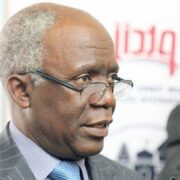

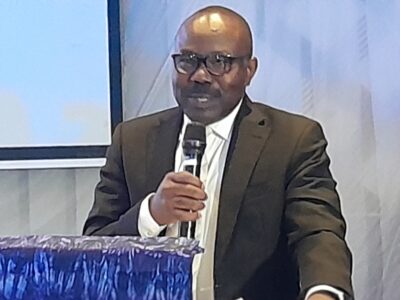

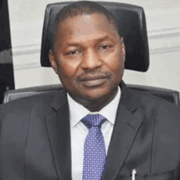


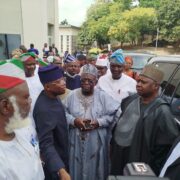









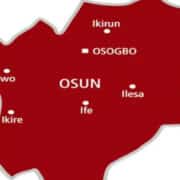
Comments